Is that dream college just beyond the horizon? You’ve poured over brochures, scrolled through websites, but something’s still missing. It’s the feeling of being there, of walking the campus, of soaking in the atmosphere. Don’t let distance be a barrier. A strategic virtual campus tour can bridge that gap, offering a unique and powerful glimpse into your future.
This article is your guide to crafting a virtual campus tour experience that goes beyond the surface, providing you with the insights and connections you need to make the right choice. We’ll explore how to leverage technology, prepare insightful questions, and connect with current students – all from the comfort of your home.
Why a Virtual Campus Tour Matters
In a world where hopping on a plane is not always feasible, the virtual campus tour has emerged as a game-changer for prospective college students. Let’s delve into why this digital experience is more than just a convenient alternative:
Overcoming Geographical Barriers
Distance is no longer a deterrent. Whether you’re across the country or across the globe, a virtual campus tour instantly shrinks the map. This opens up possibilities to explore institutions you might have previously dismissed due to travel constraints.
Saving Time and Money
College visits can be expensive, involving flights, hotels, and meals. A virtual campus tour eliminates these costs, allowing you to explore multiple campuses without breaking the bank. The time saved from traveling can be better invested in researching programs and preparing applications.
Accessibility for All
Virtual campus tours provide an inclusive experience for students with disabilities or other limitations that might make physical visits challenging. This levels the playing field, ensuring everyone has access to the same information and opportunities.
A First Impression Powerhouse
Think of a virtual campus tour as your initial screening process. It helps you narrow down your options, identify schools that genuinely resonate with you, and prioritize those for future in-person visits, if possible.
Building Your Virtual Campus Tour Success Strategy
A successful virtual campus tour requires more than just clicking through a website. It’s about active engagement, strategic planning, and maximizing the available resources. Here’s how to make the most of your experience:
1. Pre-Tour Prep: Know What You’re Looking For
Before diving into the virtual world, take some time to define your priorities. What are the most important aspects you want to assess during your campus tour?
- Academics: Research specific departments, faculty profiles, and available resources like libraries and labs.
- Campus Culture: Explore student life, clubs, organizations, and recreational facilities. Get a feel for the overall vibe and whether it aligns with your personality.
- Location and Surroundings: Investigate the campus’s location within the city or town. Consider factors like safety, transportation, and access to internships or job opportunities.
- Student Resources: Investigate support services such as career counseling, tutoring, disability services, and mental health resources.
- Housing: Explore residence halls, off-campus housing options, and associated costs.
2. Choosing the Right Virtual Campus Tour Platform
Colleges offer virtual campus tours through various platforms. Understanding the options allows you to choose the format that best suits your learning style and preferences:
- Interactive Maps: These allow you to navigate the campus at your own pace, clicking on points of interest to learn more about specific buildings or landmarks.
- 360° Videos: Immerse yourself in a realistic view of the campus with panoramic videos that showcase different locations and perspectives.
- Live Virtual Tours: Participate in real-time guided tours led by current students or admissions staff. This provides opportunities to ask questions and interact with others.
- Pre-Recorded Videos: Access a library of videos that cover different aspects of campus life, academics, and student resources. These offer flexibility and can be viewed at any time.
- Virtual Reality (VR) Experiences: Some colleges offer VR tours that provide a fully immersive experience, allowing you to “walk” through the campus using a VR headset.
3. Crafting Your Question Arsenal: Dig Deeper Than the Surface
A virtual campus tour is your chance to get your burning questions answered. Prepare a list of insightful questions that go beyond the standard FAQs:
- Academics:
- What opportunities exist for undergraduate research in my field?
- How accessible are professors outside of class hours?
- Can you describe the typical class size and teaching style in my major?
- What are the graduation rates for students in my intended major?
- Campus Culture:
- What are some popular student organizations or clubs on campus?
- How would you describe the student body’s diversity and inclusivity?
- What types of social events or activities are common on weekends?
- What opportunities exist for students to get involved in community service or volunteer work?
- Student Life:
- What is the quality and availability of on-campus housing?
- How safe is the campus, and what security measures are in place?
- What is the dining situation like on campus? Are there options for students with dietary restrictions?
- What are some popular off-campus attractions or activities?
- Career Opportunities:
- What resources are available to help students find internships or jobs after graduation?
- Does the college have strong relationships with companies in my field?
- What percentage of graduates find employment in their field within six months of graduation?
- Financial Aid:
- What percentage of students receive financial aid?
- Are there merit-based scholarships available for students with strong academic records?
- What is the average debt load for graduates?
4. Connecting with Current Students: Get the Inside Scoop
Hearing directly from current students offers invaluable insights into the realities of campus life. Here are a few ways to connect:
- Attend Virtual Q&A Sessions: Many colleges host online Q&A sessions with current students. Take advantage of these opportunities to ask questions and hear their perspectives.
- Reach Out Through Social Media: Connect with students through social media platforms like LinkedIn or Instagram. Be respectful and professional in your approach.
- Join Online Forums or Communities: Participate in online forums or communities dedicated to the college. This allows you to engage in discussions and ask questions of current students.
- Request a Virtual Meeting: Some colleges offer the option to request a virtual meeting with a current student. This provides a more personalized opportunity to ask questions and learn about their experiences.
5. Exploring Beyond the Official Tour: Unearth Hidden Gems
Don’t limit yourself to the official virtual campus tour. Explore additional resources to gain a more comprehensive understanding of the college:
- Student Blogs and Vlogs: Read student blogs or watch student vlogs to get a glimpse into their daily lives on campus.
- Social Media Feeds: Follow the college’s social media accounts to stay up-to-date on campus news, events, and activities.
- Online Reviews: Read online reviews from current and former students to get a balanced perspective on the college’s strengths and weaknesses.
- Google Street View: Use Google Street View to explore the campus surroundings and get a feel for the neighborhood.
6. The Power of Note-Taking: Capture Key Impressions
As you navigate the virtual campus tour, take detailed notes on your observations, impressions, and answers to your questions. This will help you compare different colleges and make informed decisions.
- Use a Spreadsheet: Create a spreadsheet to compare different colleges based on key factors like academics, campus culture, location, and cost.
- Write Down Key Takeaways: Summarize your key takeaways from each campus tour, highlighting the aspects that resonated with you and those that raised concerns.
- Reflect on Your Feelings: Note how you felt during the campus tour. Did you feel excited, inspired, or welcomed? These emotions can provide valuable insights into whether the college is a good fit for you.
7. Addressing the Limitations: Supplementing the Virtual Experience
While virtual campus tours offer numerous benefits, it’s important to acknowledge their limitations:
- Lack of Sensory Experience: A virtual campus tour cannot fully replicate the sensory experience of being on campus. You won’t be able to smell the fresh-cut grass, feel the energy of the student union, or hear the sounds of the marching band.
- Limited Interaction: While you can interact with current students and admissions staff during a virtual campus tour, it’s not the same as having face-to-face conversations and building personal connections.
- Potential for Bias: Virtual campus tours are often carefully curated to showcase the college in the best possible light. Be aware of potential biases and seek out additional sources of information to get a more balanced perspective.
To overcome these limitations, consider supplementing your virtual campus tour with:
- In-Person Visits: If possible, schedule in-person visits to your top-choice colleges. This will allow you to experience the campus firsthand and make a more informed decision.
- Connecting with Alumni: Reach out to alumni who live in your area and ask them about their experiences at the college.
- Attending Virtual Events: Participate in virtual events like webinars or online lectures to learn more about the college’s academic programs and faculty.
Common Virtual Campus Tour Mistakes (and How to Avoid Them)
Even with careful planning, it’s easy to stumble. Here are some frequent missteps and tips on how to avoid them:
Mistake 1: Lack of Preparation
- Problem: Jumping into a virtual campus tour without defining your priorities or preparing questions.
- Solution: Follow the pre-tour preparation steps outlined above. Know what you’re looking for and craft insightful questions.
Mistake 2: Passive Participation
- Problem: Simply watching the virtual campus tour without actively engaging or asking questions.
- Solution: Participate actively in live tours, ask questions, and connect with current students.
Mistake 3: Relying Solely on Official Materials
- Problem: Limiting your research to the college’s website and official virtual campus tour.
- Solution: Explore additional resources like student blogs, social media feeds, and online reviews.
Mistake 4: Ignoring the Limitations
- Problem: Expecting a virtual campus tour to fully replicate the experience of being on campus.
- Solution: Acknowledge the limitations and supplement the virtual experience with in-person visits (if possible) and other resources.
Mistake 5: Neglecting Note-Taking
- Problem: Failing to take detailed notes on your observations, impressions, and answers to your questions.
- Solution: Use a spreadsheet or notebook to capture key takeaways and compare different colleges.
Mistake 6: Forgetting to Follow Up
- Problem: Neglecting to follow up with admissions staff or current students after the virtual campus tour.
- Solution: Send thank-you notes and follow up with any unanswered questions.
Beyond the Tour: Evaluating Your Virtual Campus Experience
The virtual campus tour is complete. Now, what? The evaluation stage is crucial for making sense of your experience and determining the best fit.
Review Your Notes
Take time to review your notes, spreadsheets, and any other materials you gathered during the campus tour. This will help you consolidate your impressions and identify key themes or concerns.
Compare and Contrast
Compare and contrast the different colleges you’ve visited virtually. What were the strengths and weaknesses of each institution? Which one seemed like the best fit for your academic and personal goals?
Trust Your Gut
Ultimately, the decision of where to attend college is a personal one. Trust your gut feelings and choose the institution that feels right for you.
Take Action
Once you’ve made your decision, take action by submitting your application, requesting financial aid, and preparing for your college journey.
The Future of Campus Exploration: Beyond the Screen
Virtual campus tours are constantly evolving, with new technologies and innovations on the horizon:
Enhanced Virtual Reality (VR) Experiences
VR technology is becoming more sophisticated, offering increasingly immersive and realistic campus tour experiences. Imagine being able to “walk” through the campus, interact with objects, and even attend virtual classes.
Artificial Intelligence (AI)-Powered Tours
AI-powered virtual campus tours could provide personalized recommendations and answer questions in real-time, based on your individual interests and preferences.
Gamified Campus Exploration
Colleges could incorporate gamification elements into their virtual campus tours, creating interactive challenges and rewards to engage prospective students.
Integration with Social Media
Virtual campus tours could be seamlessly integrated with social media platforms, allowing you to connect with current students and share your experiences with friends and family.
Is This College Right for You?
You’ve navigated the virtual halls, asked the crucial questions, and connected with the campus community from afar. Now comes the critical question: Is this college right for you?
A virtual campus tour provides an unparalleled opportunity to bridge geographical gaps, save time and money, and gain valuable insights into your potential academic home. By following the strategies outlined in this article, you can transform your virtual campus tour from a passive viewing experience into an active, engaging, and informative journey. Remember to prepare thoroughly, ask insightful questions, connect with current students, explore beyond the official tour, and take detailed notes. The virtual world is at your fingertips – use it wisely to find the perfect college for your future.

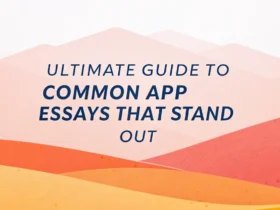
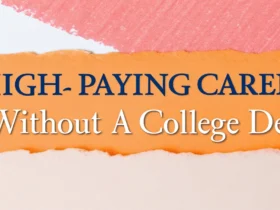

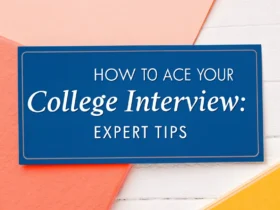

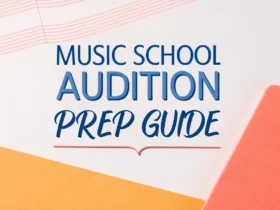






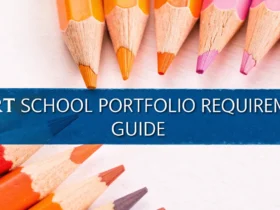
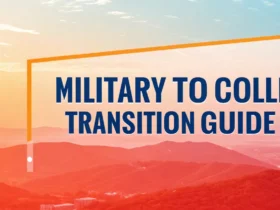
Leave a Reply
View Comments